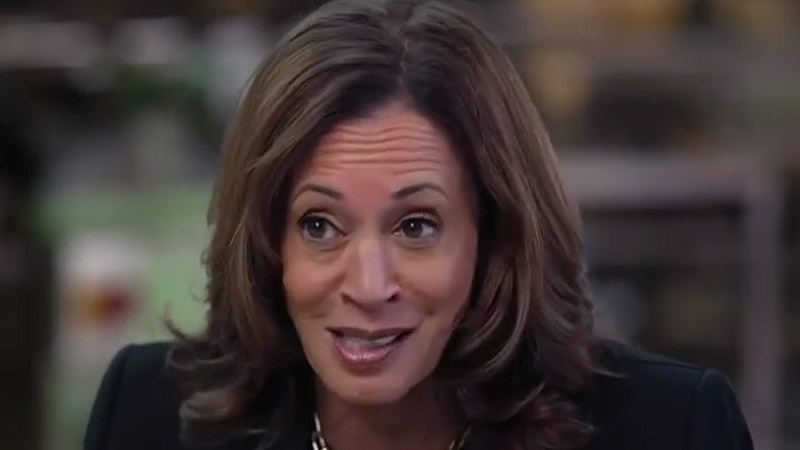In a heated exchange on MSNBC’s The 11th Hour, Vice President Kamala Harris pushed back against her interviewer, Stephanie Ruhle, over controversial claims about former President Donald Trump’s economic legacy. Harris, promoting her new economic policy, didn’t hold back when she claimed Trump left the United States with the worst economic situation since the Great Depression. Donald Trump,” Harris stated firmly, “left us with the worst economy since the Great Depression when you look at, for example, the employment numbers.”
This strong claim sparked an immediate response from Ruhle, who interrupted Harris to highlight the impact of the COVID-19 pandemic on the economy. “Unemployment was so high because we shut down the government, we shut down the country,” Ruhle reminded her, pointing to the unprecedented circumstances of the global pandemic.
Harris Defends Her Position
While Ruhle’s point was valid in the context of the pandemic, Harris came prepared with facts that extended beyond the pandemic’s impact. She emphasized that Trump’s economic record was already faltering, particularly in the manufacturing sector, even before COVID-19 struck.
“Even before the pandemic, he lost manufacturing jobs — by most people’s estimates, at least 200,000,” Harris countered, referencing an analysis from the BlueGreen Alliance, a coalition that includes groups like the United Steelworkers and the Sierra Club.
This figure points to broader concerns about the long-term trajectory of manufacturing jobs under Trump. Harris reinforced her argument by mentioning the impact on specific industries, particularly the auto sector. “Ask the autoworkers how he lost auto plants,” she said pointedly. “We have grown over 20 new auto plants.”
Harris’s statement aligns with findings from a Politifact fact-check, which confirms that while auto manufacturing jobs increased under Presidents Joe Biden and Barack Obama, they remained stagnant under Trump. This contrast highlights one of Harris’ key points: that her administration’s policies have focused on bringing back jobs, especially in critical sectors like manufacturing, where the Trump administration struggled.
Middle-Class Growth vs. Favoring the Wealthy
Throughout the interview, Harris also contrasted her economic plan with Trump’s, presenting her vision as one that centers on middle-class growth while still holding the wealthiest Americans accountable for their fair share of taxes.
“The facts remain that Donald Trump has a history of taking care of very rich people,” she said. “And I’m not mad at anybody for being rich, but they should pay their fair share.”
This sentiment taps into a broader debate about tax fairness and economic policy. Harris emphasized that her goal isn’t to punish wealth but to ensure a balanced system where the rich contribute equitably to the economy. By doing so, she argued, the country could foster economic growth that benefits everyone, particularly the middle class.
“My perspective, on the economy, is when you grow the middle class, America’s economy is stronger,” Harris said, underscoring her administration’s focus on lifting up working families. “And there’s empirical evidence to prove my point correct.”
A Clear Economic Divide
The exchange between Harris and Ruhle underscored the ongoing political debate over Trump’s economic legacy and the future of economic policy in America. While Trump and his supporters argue that his policies helped the wealthy and large corporations, Harris made the case for a more balanced approach that aims to grow the middle class without stifling success at the top.
As the Biden administration continues to push forward with its economic agenda, Harris’ remarks reflect a broader strategy of contrasting their plans for the economy with Trump’s, highlighting issues like job growth, tax fairness, and middle-class prosperity.
In an era of deep political and economic divisions, Harris’ rebuttal serves as a clear message: her administration is focused on policies that, she believes, will create long-term economic stability for all Americans, not just the wealthiest few.

